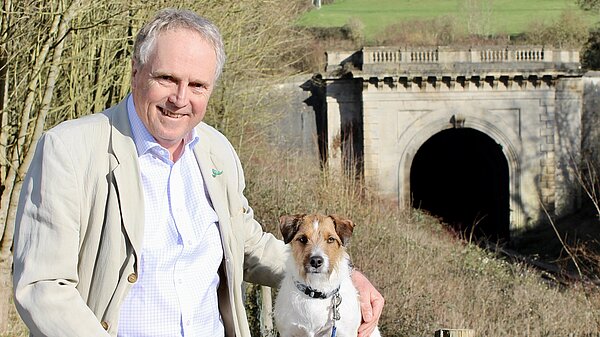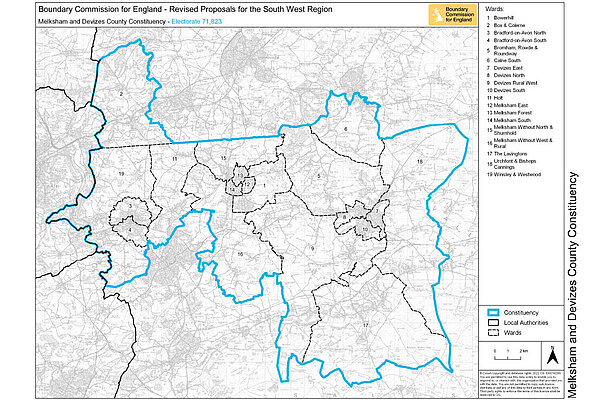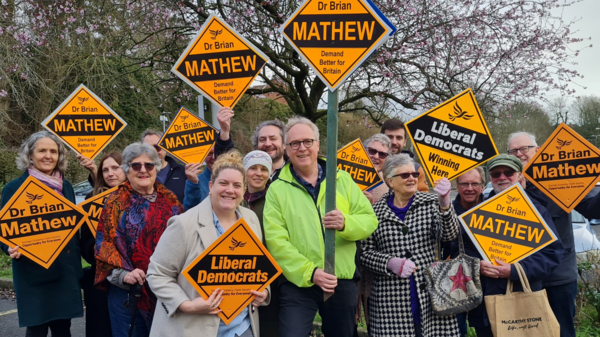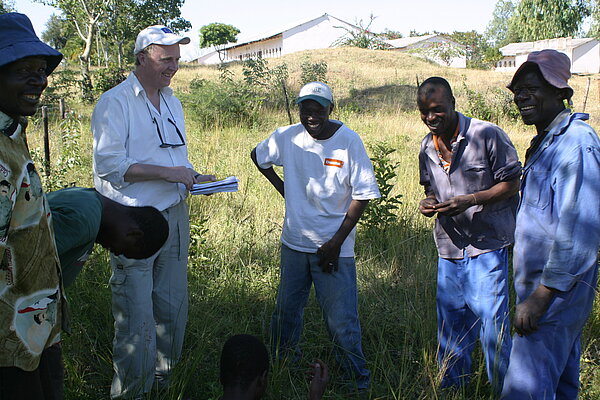
Dr Brian Mathew
A hard-working MP
- A strong voice for Melksham and Devizes
- Fixing our planet and cutting the cost of living
- A positive plan to get a fairer deal for Melksham and Devizes
We need more MPs like Brian - people who love our area and have a track record for getting things done.
Melksham & Devizes
The constituency of Melksham & Devizes was formed at the start of 2024. It covers the towns of Bradford on Avon, Devizes, and Melksham, plus many villages - from Box to Wingfield, and Limpley Stoke to Urchfont. In the 2024 General Election, polling put us close behind the Conservatives and we beat the odds. Brian joined 71 other Liberal Democrat MPs in Parliament, two of which also cover parts of Wiltshire (Sarah Gibson for Chippenham and Roz Savage for South Cotswolds).
It was the honour of my life to be elected last summer. I will keep campaigning and delivering for the people of our part of Wiltshire.
Brian's message to residents
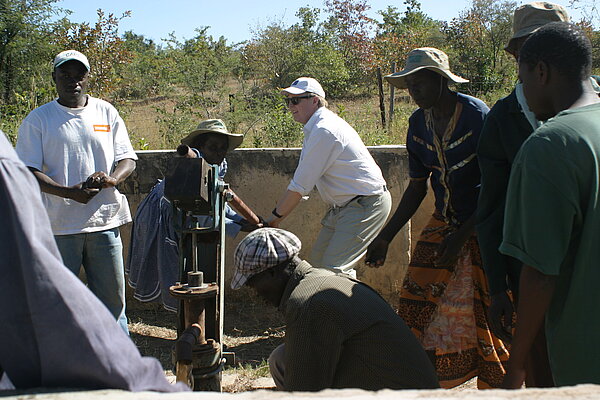
Aid Work
Brian is passionate about combating poverty and has proved this with his career in development work, assisting charities and NGOs across Africa. He has worked in war zones and on cholera epidemics and understands first-hand what is needed to keep people safe.
Locally, he has volunteered with the Wiltshire-based social welfare charity HEALS, and raised thousands for charity including the Royal British Legion.
Q&A with Brian Mathew
-
I had two deaf sisters, so from an early age that made me think about standing up for people who don’t have a voice. My mother was a social worker who had worked in London, Belfast and Liverpool before she had us, so quite tough areas and we talked a lot about casework-type things. Those are some early influences. At school, scripture union was important, and we had an amazing teacher; in terms of working out your place in the universe, Christianity is so embedded in our culture that it’s important to understand it, and in my case to be a Christian.
When I was about nine years old there was the ‘save the tiger’ campaign. I really took it to heart, so I thought I would write a book to raise funds – in the way you do when you are knee-high to a grasshopper – and I did. My father’s work helped with the printing, and somehow one copy made its way to Sir Peter Scott, who drew two pink-footed geese on the front cover and signed it - a lovely thing to have and an inspiration. So that kind of got me started on environmentalism.
I’m dyslexic, which some people see as a superpower because of how it makes your brain see the world. In my case, it helps me understand systems and I’ve used it to figure out how things can work better. While at university I had the chance to take a year out to research herb and spice production in the Middle East; it was a fascinating insight into agriculture generally. It allowed me to look at agricultural research, production and marketing in Egypt and Israel and how the Israeli system in particular had so much to teach the world in terms of collaboration, team building and efficiency.
I was based for much of the time at Kibbutz Reim, one of the kibbutzim near Gaza that was attacked on October 7th 2023, so I know some of the people that were directly affected by that. It’s a terrible irony because many of the kibbutz residents there were helping people in Gaza. During my time there we used to go with my Jewish friends to visit their Arab friends in Gaza, to drink coffee and trade. It was mind-opening. What has happened since has been absolutely tragic. I’ve worked in the Arab world too so I kind of identify with both sides and it reinforces your drive to build peace and make the world a better place.
-
After agricultural engineering college, I was a volunteer in Honduras, Central America, and saw kids suffering from horrible malnutrition there. Their parents were coffee workers, who would get about three months work a year, on a dollar a day, when they were working. Later in my trip, I met campesinos in Costa Rica who were paid between 19 to 25 dollars a day for the same work. Exploitation was directly leading to this horrible starvation of little girls in Honduras and it was unforgivable. I’ll never forget that because that is what unfettered capitalism looks like and is plain wrong.
After that I went to Zambia on a UN post-conflict normalisation programme, bringing water, health and agricultural assistance. I was there for two and a half years and really enjoyed it, it was an amazing place. I also worked in Angola and Sudan. Later, I was very lucky to get a job with Water Aid; they asked me to be the country representative for their programme in Tanzania. By the time I left, we’d brought water to around 400,000 people, which was pretty special.
A lot of people criticise aid and say it never works. It does work, but you’ve got to do it in the right way, and this is what I ended up writing my PhD thesis about. My mindset is about finding solutions, and when I got the chance to get involved in local government here, it’s the same thing, working with people and finding solutions that people can be involved with. And that, I think, is what being a politician should be all about.
-
There’s a wonderful quote from our constitution, “The Liberal Democrats exist to build and safeguard a fair, free and open society, in which we seek to balance the fundamental values of liberty, equality and community, and in which no-one shall be enslaved by poverty, ignorance or conformity.” Often as an engineer or a scientist, you have to go back to first principles. As Liberal Democrats, these are our first principles and the ones I agree with.
-
Obviously, the whole thrill of working with my ward and the people in it, number one. The first policy thing I got involved with was the Shared Lives programme. Essentially, it gives the clients a better experience because they are part of a family. Carers can take up to three people into their homes, and it gives the carers an income. In terms of local government, it represents an absolutely massive saving because if people are in a care home, it’s going to cost much much more. Wiltshire Council was already doing it but in a very limited way. I wrote, and debated through full council, a motion to scale it up. We’re now saving hundreds of thousands of pounds a year at Wiltshire Council, and this will be millions, and at the same time improving people's lives and giving the carers a living. A real win win win.
The second big policy area I got involved with was the climate emergency. After meeting people from the then unheard-of group Extinction Rebellion just before Christmas in 2018, I wrote and proposed the motion. I looked at an example from Bristol and re-wrote it for a rural area like Wiltshire. It was a long debate which united the opposition parties, us, the independents, and Labour. At one stage, one of the Conservative Councillors said if I changed something in it, he’d vote for it, but then another Conservative councillor said: ‘no don’t change it, we should be thinking about our grandchildren and voting for Dr Mathew’s motion’, and when he said that you could feel the ice break in the council chamber. By saying what he did he effectively gave some of his colleagues permission to rebel. We won it on a rugby score of a vote: 36 for with 32 against and 7 abstentions. In terms of democracy, it was one of the best days of my life.
-
Very much those values of liberalism, of making the world a better place. It’s our duty to do that.
At its heart, local democracy should be about what happens in the locality. When we think about healthcare and everything that has had budget cuts, we’ve got to turn that around. So much of what a member of parliament does is reflecting on the needs of the locality and representing that area at a national level.
In terms of national projects that I’d like to see launched, I’d be very focused on clean energy – for example, tidal energy and what could be done to make that happen at scale.
There is another role to being an MP, which is like that of a super-councillor, or a caseworker, helping people and communities with particular issues or opportunities. There are ways you can help as a Member of Parliament, and I relish the chance to represent and stand up for the people of this area at Westminster.
-
To my mind work should be fun, but yes, I love spending time with my partner, Flossie, especially when we get away in the summer and camp on a farm on the south coast with our animals, William the pony and Heidi the small dog. I also enjoy watching cricket, talking with friends, and sometimes target shooting, which has been a hobby since my father taught me as a young boy.
